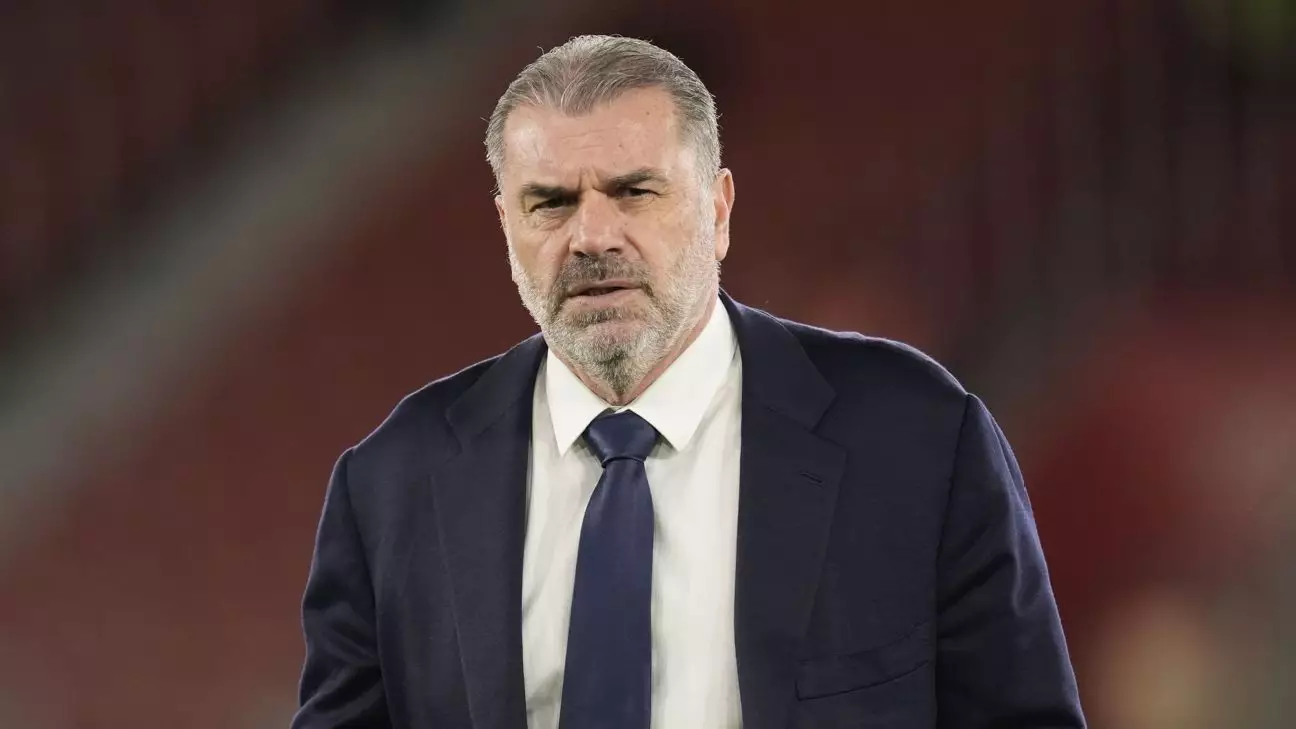Ange Postecoglou, the Australian manager of Tottenham Hotspur, finds himself in the throes of public scrutiny as his team navigates a challenging season. Despite a promising start, recent performances have left supporters and pundits alike questioning his methods and tactics. However, it is crucial to dissect the nuances of this criticism and the broader implications for both Postecoglou and the club.
When Postecoglou took the reins at Spurs, he inherited a club yearning for identity after a tumultuous period of management. His vision of an attacking, front-foot style has been met with resistance, especially as results fluctuated. The current league position, sitting at 10th with only two wins in their last seven games across all competitions, amplifies this tension. The chaotic nature of Tottenham’s recent matches, particularly their Carabao Cup quarterfinal against Manchester United—which saw them nearly squander a 3-0 lead—further fuels doubt among expectations of consistency and control.
Critics, like former Liverpool defender Jamie Carragher, have been particularly vocal, urging players to adopt a more pragmatic approach in light of their current form. This criticism may stem from a deeper desire among fans for tactical adaptability—something that has been historically characteristic of successful teams in the Premier League. While the call for pragmatism is valid, it dismisses the potential rewards of Postecoglou’s attacking philosophy. The tension embodies a prevalent debate in football: should teams prioritize results over their identity?
Postecoglou’s response to the criticism reveals much about his character and leadership style. He acknowledges the necessity of critique but draws a line when it crosses from analysis into what he terms “offensive” territory. Football, like any sport, thrives on opinions; however, there is a fine line where constructive feedback can devolve into personal attacks, often based on superficial aspects such as the manager’s background or accent.
In a press conference, Postecoglou articulated his frustration with some of the narrative surrounding his methods, suggesting that certain criticisms may have roots in biases rather than objective analysis of his managerial credentials. This reflection is significant and speaks to a broader issue within sports journalism, where commentary sometimes devolves into sensationalism rather than informed critique. Such dynamics can affect a manager’s ability to foster a positive environment for both players and fans alike.
Interestingly, as Postecoglou faces external criticism, he has also found unexpected support from his coaching peers. Liverpool’s manager, Arne Slot, has praised him for the efforts in re-establishing Tottenham’s identity within the competitive landscape of the Premier League. This acknowledgment highlights a camaraderie among managers who recognize the challenges inherent in taking over a club with high expectations. Slot’s recognition of the difficulty in filling the shoes of someone like Jürgen Klopp speaks volumes—each manager faces unique challenges, and the respect amongst them fosters a community in which they can learn from one another.
Postecoglou’s acknowledgment of Slot’s complimentary words reflects a broader philosophy of mutual respect within the game. Recognizing the pressures that accompany management assists coaches in navigating their own hurdles while reinforcing the idea that football is ultimately about collaboration—between players, managers, and the squads they oversee.
As Tottenham embarks on the remainder of the season, the path forward requires that Postecoglou remain steadfast in his approach, counterbalancing the noise of criticism with a steadfast commitment to his vision. The Premier League is unforgiving, yet it is also a space ripe for innovation and resilience. By sticking to a philosophy that prioritizes attacking football, he may yet help to galvanize his squad and win back the confidence of both critics and supporters. After all, the beauty of football often lies in its unpredictability—and the promise of what a well-established identity may yield for the future of Spurs.

